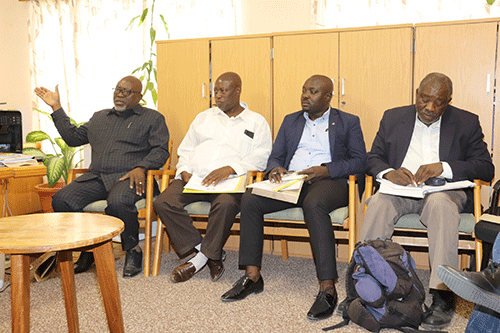Nuusita Ashipala
OSHAKATI – The parliamentary standing committee on information communication is imploring the implementation of digital health passports in the hospitals.
The chairperson of the ICT committee, Modestus Amutse, said the digital health passport will enable patients to have their health history in one place and subsequently improve health care in the country.
The committee is also doing regional consultations on the management of medicine and other medical supplies at the medical stores in the country.
Amutse said the committee is exploring the idea of putting up one-digitalised system to be used from the medical stores until the last users at the clinics in the villages to address the complaints of shortages of medicine and supplies in the hospitals.
“We have also been informed by some with regards to the type of health passports that we use in Namibia, and we were trying to compare that to other health passports that other countries use so that we can benchmark them to see which one will deliver best services to our own people,” said Amutse.
He was speaking at a consultation meeting the with staff of the ministry of health at Oshakati on Monday morning.
Amutse said the digital health passport will allow medical personnel to trace patient’s medical history and enable the ministry to preserve it for years as compared to now, where people have multiple health passports that are, in some instances, lost.
He further elaborated that the digital health passports, envisaged to be in an atm card form, will be easy to carry and enable the public to be treated with ease across the country.
The region expressed that there is a current system that is working effectively but called for emphasis to be placed on the personnel entrusted to work with ensuring the hospital has adequate supplies to do their jobs effectively.
Some of the challenges that were highlighted as leading causes of lack of medicine in hospitals includes orders not being placed on time – and in some instances, the medicine not delivered on time.
“Sometimes, when the orders come in, they need time to be processed. At times the item is not available at the central warehouse,” said Justus Ekandjo, a chief pharmacist at Oshakati.



